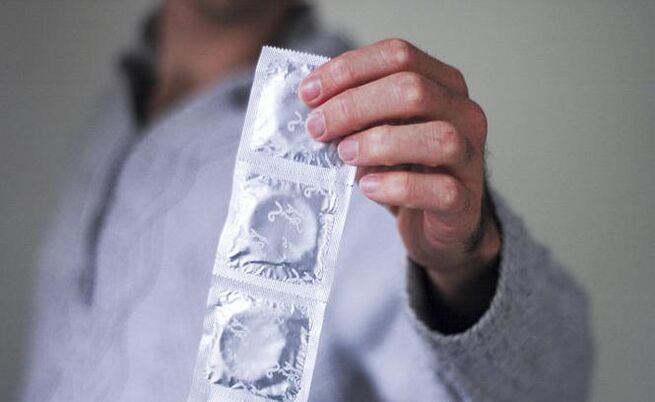
Prostatitis is the most common urological disease today. This is due to the fact that the factors that lead to the development of prostatitis are very common in men's daily lives. In general, the treatment of prostatitis is a very complex process consisting of a complex of procedures, medications, treatments and massage. Antibiotics, anti-inflammatory drugs, painkillers and immune-boosting drugs help to achieve remission of the disease and prevent the painful symptoms of prostatitis.
Drug treatment of prostatitis
Several methods are usually recommended for the treatment of the prostate gland, namely:
- Candles.It is applied rectally, affects the metabolism of the prostate. It is recommended to lie down for 30-40 minutes after application. The course lasts from five to ten days. Contraindications: sensitivity to the components of suppositories. Possible side effects: allergies (itching and burning).
- Anti-prostatitis needles.The drugs also stimulate the immune system and strengthen the vascular system.
- Installation.This type of therapy allows the drug to be delivered directly to the destination - the drug is administered from the external opening of the urethra. The bladder should be emptied before the procedure, it is recommended to inject about 5 ml of the drug mixture.
- Microclusters.This method is often called "folk" because of the use of infusions and decoctions of herbs widely used in traditional medicine. It is based on the simultaneous effects of temperature and medication, which increases its effectiveness. As a rule, it is recommended to take microclysters before bedtime - after the procedure, the prostate gland can not withstand tension and possible hypothermia. As a medicine, infusions of sage, calendula, chamomile, motherwort are used. The solution is injected into the rectum (not more than 100 ml), where it must be swallowed. Microclysters are usually used in parallel with treatment with antibacterial drugs.
- Tablets for the treatment of prostate.Broad-spectrum antibacterial agents are often used to treat a disease such as prostatitis, especially when the cause of the disease has not been identified. Such drugs can be divided into three groups: drugs of the tetracycline group, drugs of the penicillin series, drugs of the fluoroquinolone group.
Antibiotics for the treatment of prostatitis
Let's take a closer look at the latest group of drugs for the treatment of prostatitis.
Fluoroquinolones are modern, relatively recently developed antibacterial agents. In this regard, they have a number of advantages over other broad-spectrum antibiotics. Drugs of this group practically do not cause immunodeficiency in patients. Representatives of fluoroquinolones have a wider effect on microorganisms.
Tetracycline drugs are less commonly used than fluoroquinolones as an antibacterial treatment for prostatitis. Specialists usually prescribe antibiotics for chronic and infectious prostatitis. The method of treatment with the non-infectious form remains controversial and has not been fully studied.
In the treatment of prostatitis, antibacterial drugs are not prescribed immediately, but only after the doctor examines the patient to detect infection. During this period, symptomatic therapy is usually recommended to combat inflammatory processes and pain symptoms.
Antibiotic treatment lasts approximately four weeks or more with mandatory clinical monitoring of the patient's condition. In the absence of a positive result of treatment, antibacterial drugs are discontinued, but not later than two weeks after the start of the course.
After successful therapy with antibiotics, the patient can be in good health for a long time. However, as a rule, painful feelings return over time, so treatment with antibacterial drugs alone should not be considered sufficient. Good results are achieved with a therapy program aimed at increasing the body's local and general resistance to pathogenic factors. In this case, you can count on success or at least a long remission.
Prostatitis: what to ask at the pharmacy?
Next, I would like to draw your attention to the drugs for the treatment of the prostate gland, which are gaining popularity in the market today and are the most widely used drugs for prostatitis.
An herbal preparation with sabal palm fruit extract. The drug is used in the treatment of benign prostatic hyperplasia of the first and second stages, as well as chronic prostatitis. How to use: Take one capsule daily after meals, for plenty of fluids, do not chew. Contraindications: sensitivity to components. Side effects: gastralgia (very rare). If we evaluate the experience and opinions of patients, today the tool is the most purchased.
A drug produced in the form of injections and suppositories. Has an organotropic effect on the prostate gland. The drug normalizes the processes of spermatogenesis and microcirculation, increases the tone of the muscles of the bladder. Indications: chronic prostatitis, prostate adenoma, etc. Additional effects in the form of allergic reactions are possible. The drug is not the most expensive in terms of price, it treats and not only eliminates the symptoms, it is not synthesized purely chemically, it has not been studied in overdose.
The most important thing that every man should know is that you should see a urologist immediately when the first signs of prostatitis appear. The specialist will prescribe the necessary therapy, choose the best medicine for your condition and determine the effective course of treatment.



























